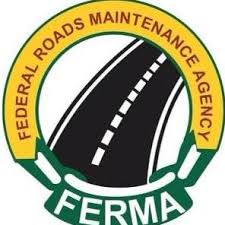ONE of the problems bedevilling Nigeria is the recurring cycles of poor budgetary allocation and inadequate release of funds to critical sectors of the economy. For roads, it is more pronounced due to a combination of factors, including paucity of funds and lack of expertise by concerned agencies.
Among numerous agencies of the federal government most affected is the Federal Roads Maintenance Agency (FERMA), which at the present time had been retarded in performing the role assigned to it by the enabling law. The state of the agency was captured by the Minister of State, Federal Ministry of Works, Mr. Mohammed Bello Goronyo who lamented the inadequate provision of funds during the 2025 budget defence by FERMA few days ago. Goronye pointed out the pitiable situation under which the agency had been operating for years.
According to a statement signed by Mr. Mohammed A. Ahmed, Director of Press and Public Relations on behalf of the minister, the inadequate provision was at variance with the enormity of task it is saddled with nationwide. For instance, the statement further stated that while the allocation of N97.7 billion in the Act of 2024 was remained paltry until a presidential intervention raised the total sum to N103.3 billion, the total sum released to the agency was only N41.282 billion.
Although the agency proposed 2025 budget of N64.88 billion, comprising N4.9 billion, N33.468 billion and N26.487 billion for personnel, overhead and capital costs respectively, its adequacy was evident vis-a-vis the magnitude of jobs it’s expected to execute in the fiscal year. The reality of the agency’s predicament was acknowledged by the National Assembly Committee as it noted that the allocation to the agency was not enough to enable it to effectively carry out its functions.
Good a thing the National Assembly Committee has identified the major predicament of FERMA, there’s however a need for it devise solutions to the problem. It’s an important agency that needs federal government’s assistance to deliver on its core mandate as captured in the Act that established it. As captured in the enabling law, the agency is to efficiently and effectively monitor and administer road maintenance with the objective of keeping all federal roads in good and safe condition.
The relevance of FERMA as an agency lies with its inevitable functions. The fact that it is responsible for the routine maintenance of federal roads across the country makes it a special agency. Indeed, in the earlier years of its existence, the agency was effective and efficient in the manner it attended to a number of federal roads in dire need of routine maintenance in parts of the country. Across the six geo-political axes of the country, deplorable roads were rehabilitated as the failed portions were excavated, compacted and asphalted to make those roads passable.
It’s the diminishing allocation of resources that has resulted in FERMA’s poor disposition to performing its responsibility. The poor attention to roads by FERMA would have been a thing of the past if the agency had been getting a fair share of its budgetary proposals. Today, numerous federal roads that cover the Benin- Asaba-Onitsha, Benin-Sapele-Warri, Warri-Ughelli-Port-Harcourt and several others in other parts of the country, remain largely impassable because of FERMA’s incapacitation to carry out initial remediation to keep the roads in motorable condition.
As a matter of fact, the neglect of FERMA has had painful effects on the state of the country’s economy. As much as a network of quality infrastructure facilitates economic growth and investment, the continual deterioration is a harbinger of stagnation on the socio-economic front. A case in point is the abandoned Agbor-Abavo-Umutu-Abraka-Warri road. That development has affected the growth and patronage of agro-based ventures in that axis of Delta State for many years.
There is, therefore, an urgent need for the Federal Government to re-appraise its funding modality by increasing the budgetary allocation to FERMA to enable it to attend to routine road maintenance. We believe it’s much easier to carry out initial repairs, rather than wait for the roads to deteriorate to an extent that not only stalls movement of persons and goods but also become capital-intensive. Time has come for us to prioritise regular roads maintenance at all times.


